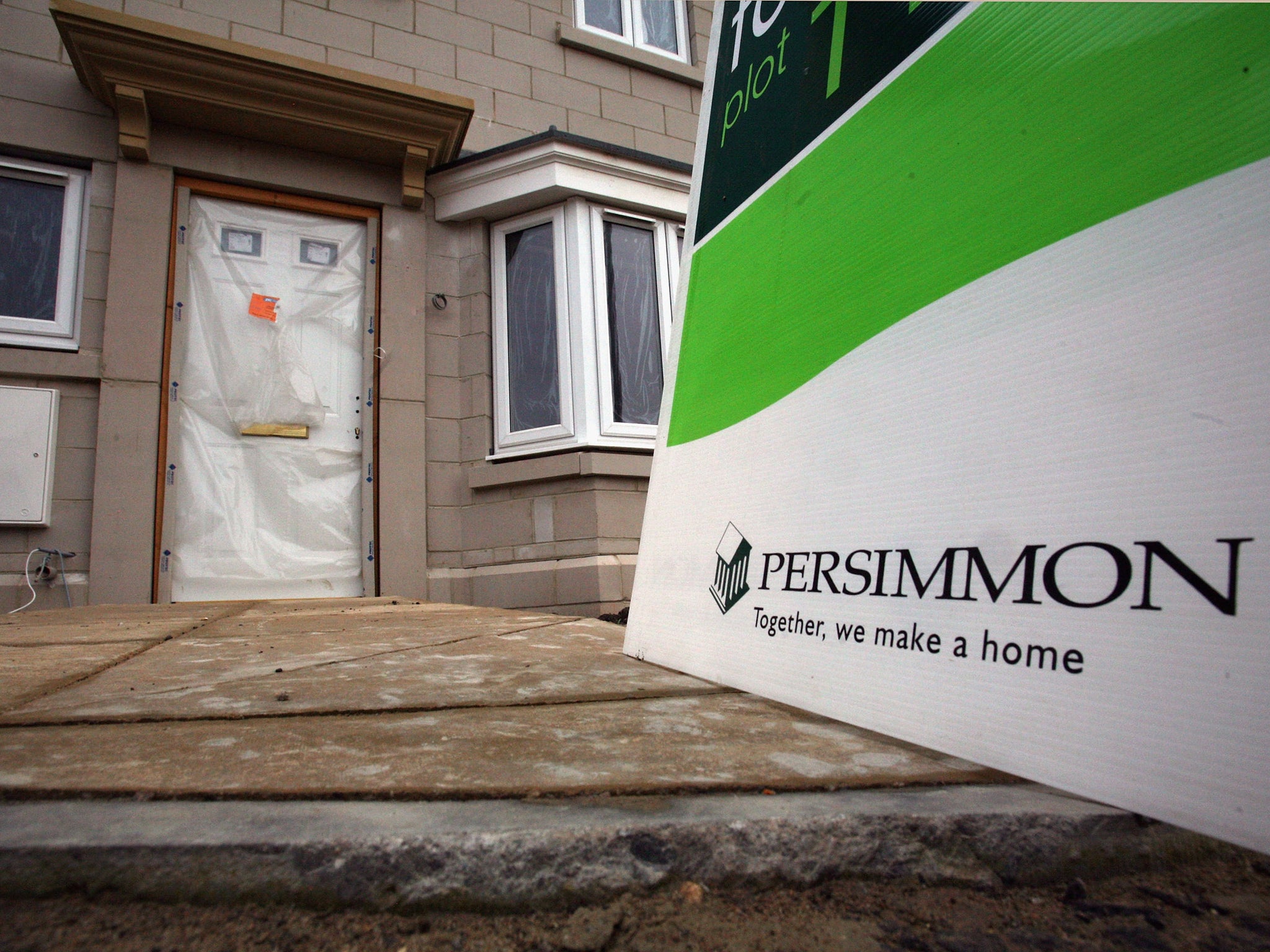Persimmon: Will £100m CEO Jeff Fairburn accept blame if the roof falls in as some analysts fear?
Rachel Reeves, chair of the parliamentary business committee, has revealed the boss has been paid more than 3,000 times what the lowest paid Persimmon employee receives, and more than 1,000 times what the average employee makes

Your support helps us to tell the story
From reproductive rights to climate change to Big Tech, The Independent is on the ground when the story is developing. Whether it's investigating the financials of Elon Musk's pro-Trump PAC or producing our latest documentary, 'The A Word', which shines a light on the American women fighting for reproductive rights, we know how important it is to parse out the facts from the messaging.
At such a critical moment in US history, we need reporters on the ground. Your donation allows us to keep sending journalists to speak to both sides of the story.
The Independent is trusted by Americans across the entire political spectrum. And unlike many other quality news outlets, we choose not to lock Americans out of our reporting and analysis with paywalls. We believe quality journalism should be available to everyone, paid for by those who can afford it.
Your support makes all the difference.I’m increasingly becoming a fan of Rachel Reeves, the Labour chair of the Business, Energy and Industrial Strategy Committee, because she has an instinct for making trouble where it should be made.
The latest example was her tweeting the pay ratio of Persimmon Homes chief executive Jeff Fairburn when compared to his lowest paid employee, excluding apprentices and trainees, a couple of days before he issued his latest trading update.
You may recall that when the chair of Persimmon’s pay-setting remuneration committee appeared before Ms Reeves & Co she, strangely enough, didn’t have that rather relevant piece of information to hand.
It has now been supplied to Ms Reeves and, thanks to her twitter feed, to us too. For the record, it is 3,195:1. You’ll also find on the committee’s web page the pay ratio of Mr Fairburn to the average paid employee, excluding his pals on the executive committee. It is 1,320:1.
That’s an awful lot of, I don’t know, bricklayers? Carpenters? Electricians? Take your pick of skilled and useful workers who perform essential tasks without which there wouldn’t be a Persimmon and there wouldn’t be the 5 per cent rise in revenues for the first half of 2018, which the City’s scribblers were pouring over this morning.
There are those who would point to numbers like that, and the 3.6 per cent increase in completions to 8,072 homes, and the 1.2 per cent rise in the average selling price to £215,800, and say it’s thanks to Mr Fairburn. Including, it should be said, Mr Fairburn himself. He once infamously said he deserved the biggest bonus in British corporate history, before pressure was brought to bear and he gave a bit of it back.
On the other hand, there are even more who would point to the influence the government’s help to buy scheme has had on Persimmon’s buoyant results. It has kept first-time buyers in the game, and handed a big advantage to those, like Persimmon, who put up new build properties at a time when the rest of the market has seized up (the number of people selling their existing homes is very low by historic standards).
In other words, Mr Fairburn has been able to exploit some very favourable market conditions, which have contributed greatly to the company’s recent success, and its latest decent trading update. It doesn’t hurt that Persimmon is less exposed to London and the Southeast, where the entire housing market is slowing, than some of its rivals.
Here’s where it gets interesting.
Persimmon currently stands at a crossroads, and there is a divergence in views among analysts about where it goes from here.
Investment bank Jefferies thinks Persimmon is set for a strong near term and a strong long term, even factoring in Brexit, because the government is very keen to encourage building to alleviate Britain’s housing shortage. This, believes Jefferies, should shield the new build sector from the housing market’s current problems. It recommends holding the shares.
Shore Capital, by contrast, fears that those problems will ultimately spread to the new build market. The investment group is advising people to sell, even with the shares having come off a lot in recent weeks.
Mr Fairburn clearly thinks he’s worth 3,195 of the firm’s lowest paid staff, or 1,320 of their colleagues on the firm’s average salary. He’ll no doubt take the credit for their work, and the market’s favourable movements, if Jefferies is right.
I imagine it’ll be a different story if Shore’s analysis is on the money. If so, it might be a good time for Ms Reeves to make a little more trouble for him by hauling him in.
Join our commenting forum
Join thought-provoking conversations, follow other Independent readers and see their replies
Comments